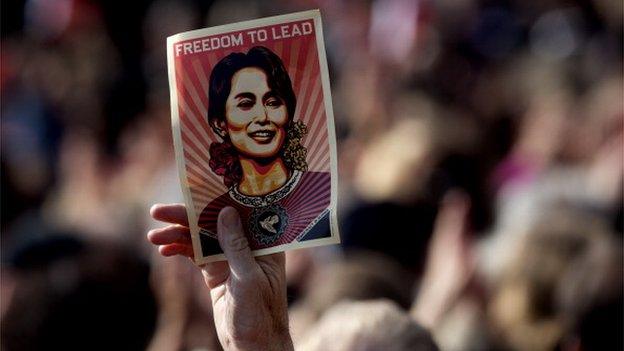Myanmar violence: Rebel leader's return sparks Kokang battle
- Published
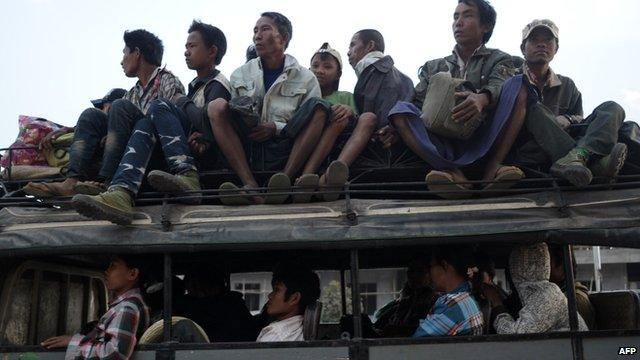
Around 30,000 Kokang people are believed to have fled across the Chinese border
A rebel leader's surprise return to Myanmar has led to violence and misery for thousands in the country's north-east, which has seen heavy fighting between rebels and government troops.
We see our first sign of the fighting by the side of the road.
A battered old truck full of frightened migrant workers has pulled over and a small crowd has gathered.
The driver and his assistant, an off-duty police officer, are pointing to a small mark on the bonnet.
They explain that it is a bullet hole from when their convoy came under attack.
The truck was helping evacuate civilians from the Kokang town of Laukkai, and was targeted despite flying a Red Cross flag.
Neither the Burmese army nor the rebels will admit to firing the shots, but most of the evidence does point to the rebels.
Three hours further down the road we reach the border town of Chin Shwe Haw and are greeted by the Burmese military. There is a state of emergency in the special region of Kokang and we are lucky to have been allowed in.
The soldiers are nervous and demand we delete video footage we had just taken of a convoy of green pickup trucks on their way to fight in Laukkai. There have been no clashes in Chin Shwe Haw yet, but the town has been abandoned.
Jonah Fisher reports: "In the last week, 30,000 Kokang are thought to have fled to China"
Exhaustion
The streets are empty and the shops closed. Stray dogs lie in piles of rubbish, no doubt wondering what the fuss is all about.
But not everyone has gone. We watch as a Kokang woman called Xue Xue lugs her suitcase towards the border with her young daughter.
She starts to tell us that she is leaving because she is scared of the soldiers, before two men in plain clothes appear. Our interview is very quickly over.
The Kokang are recognised as an ethnic group in Myanmar but in language and culture they are very much Chinese. In this special region you can use a Chinese phone network and spend Chinese money.
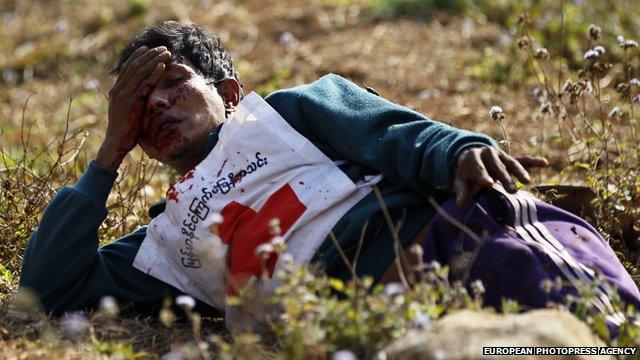
A Red Cross convoy was the target of an attack last week
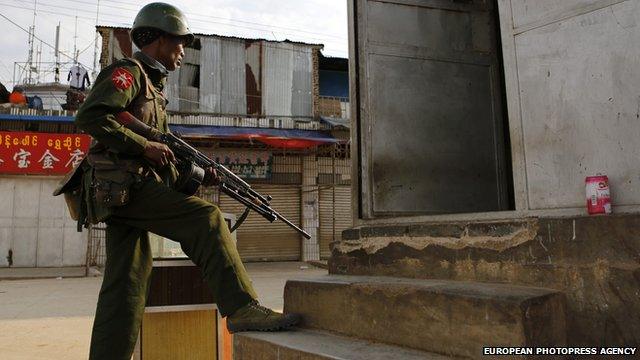
Myanmar's president has placed the army in charge of the region
In all it is thought that 30,000 Kokang have fled across the border.
As we wait for permission to film, a group of about 20 men, women and children stumble exhausted into town. The soldiers sit them down and food is brought out.
They are not Kokang but a mix of other ethnic groups.
Many had been working as labourers on sugar cane plantations inside the special region. Like many of the Kokang they initially fled into China, but after two days on foot they had now crossed back into Myanmar.
A truck is summoned, and within half an hour it is loaded and takes them away from the conflict zone.
'Much surprise'
The creation of the Kokang Special Region dates back to the collapse of the Burmese Communist Party in 1989.
In return for peace the Burmese government gave splinter groups like the Wa and the Kokang pieces of land and a large degree of autonomy.
For leaders like Kokang's Phone Kya Shin this was the green light to expand already prodigious arms and drug-trafficking networks.
After a long and lucrative period left to his own devices, the government eventually tired of Kya Shin and in particular his refusal to integrate his rebels into a national border guard force.
In August 2009 the army launched a brief incursion into Kokang and Kya Shin and his army were forced to flee into China.
A more compliant Kokang administration was put in place and for the last five years the situation has been calm. Not much was heard of Kya Shin, though rumours circulated periodically that the octogenarian was either sick or had died.
Then late last year, to much surprise, Kya Shin and his rebel group re-emerged.
Several clashes took place inside Myanmar and in a rare (and quickly deleted) interview with China's Global Times he promised to "confront the Tatmadaw (Burmese army) until we reclaim Kokang".
Since 9 February there has been a sustained period of fighting around Laukkai with the rebels inflicting heavy casualties on the army.
If Kya Shin's aim is to fight his way back to the negotiating table early signs are he may have miscalculated. The scale of the fighting has shocked many people, several of whom already have little sympathy for a group they see as being essentially Chinese.
Sensing an opportunity to bang the patriotic drum, President Thein Sein declared that the army "will not lose an inch of Myanmar territory".
They are words that upset the Kokang as they imply he doesn't regard the rebels as truly Burmese.
As we waited to leave Kokang Special Region the local army commander told me he expected the campaign to take a month.
The experience of Myanmar's many armed ethnic conflicts is that it may take much longer than that.
- Published19 February 2015
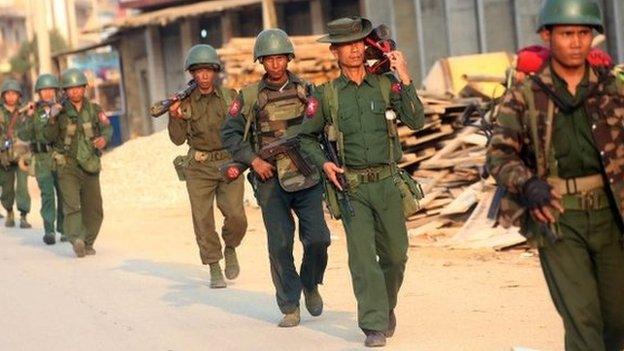
- Published17 February 2015
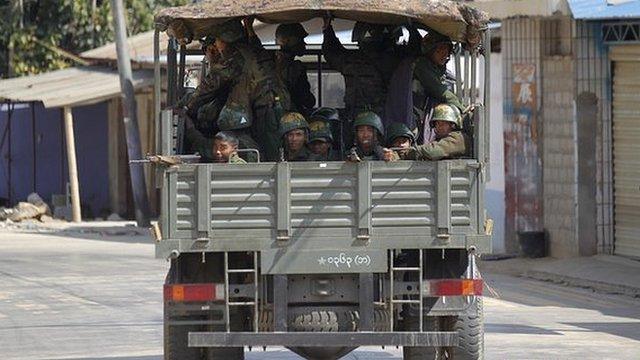
- Published19 February 2015
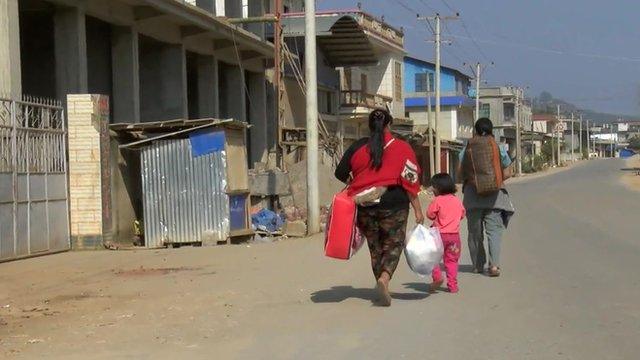
- Published26 May 2023
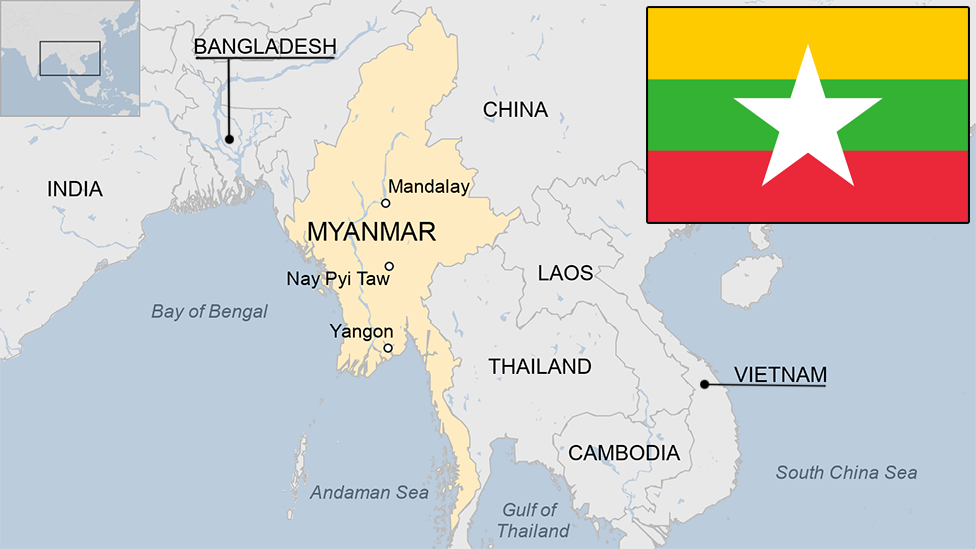
- Published8 July 2015
